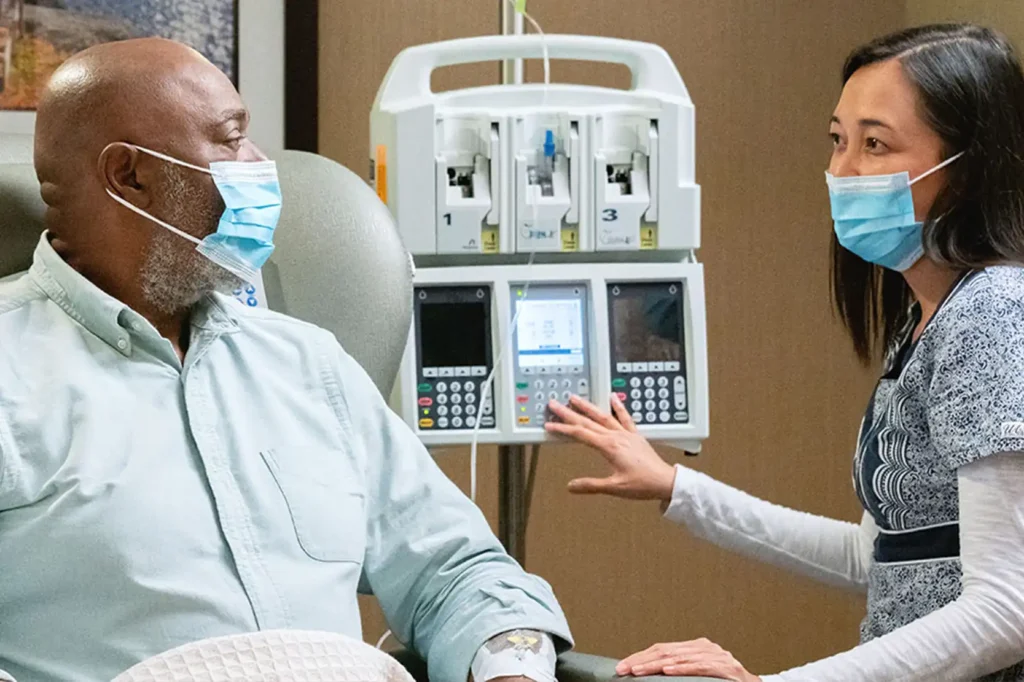Cancer treatment costs can be overwhelming, often reaching thousands or even hundreds of thousands of dollars. Cancer treatment costs and how health insurance can help are crucial topics for those facing a diagnosis.
Understanding the High Cancer Treatment Cost:
Cancer treatment costs can be overwhelming, often reaching hundreds of thousands of dollars, but the right health insurance plan can significantly reduce financial burdens. If you or a loved one has been diagnosed with cancer, understanding the financial implications is crucial. The cost of treatment varies depending on the type of cancer, the stage at diagnosis, and the treatment plan prescribed by doctors. Expenses include chemotherapy, radiation therapy, surgery, hospital stays, medications, and follow-up care.
Without financial assistance, managing these costs can be nearly impossible for many families. This is where health insurance plays a vital role in covering a major portion of cancer treatment expenses. However, not all health plans cover cancer treatments equally, making it essential to choose the right policy that provides maximum benefits. Let’s break down the actual costs of cancer treatment and how a strong health insurance plan can help you manage these expenses effectively.
Short-term plans are affordable but may lack comprehensive benefits like preventive care or maternity coverage.
Breakdown of Cancer Treatment Costs:
Cancer treatment involves multiple medical procedures, therapies, and supportive care, all of which contribute to high expenses. Below are some of the primary costs associated with cancer care.
1. Diagnosis and Initial Tests: The first step in cancer treatment is diagnosis, which involves a series of tests, including biopsies, imaging scans (MRI, CT, PET), and blood tests. These procedures can cost anywhere from $3,000 to $10,000, depending on the complexity and type of tests required.
2. Surgery and Hospitalization: If surgery is needed to remove tumors, hospital costs can be significant. Surgical procedures for cancer range from $20,000 to over $100,000, depending on the type of cancer and the complexity of the operation. Hospital stays and post-surgical care add further expenses.
3. Chemotherapy and Radiation Therapy: These are common treatments for cancer, and their costs vary based on the number of sessions required:
- Chemotherapy: Each session costs between $1,000 and $10,000, and a full treatment plan may total $50,000 or more.
- Radiation Therapy: This costs around $2,000 to $10,000 per session, and multiple sessions are often required.
4. Targeted Therapy and Immunotherapy: These advanced treatments are highly effective but extremely expensive. Targeted therapy and immunotherapy can cost $10,000 to $30,000 per month, sometimes exceeding $150,000 annually.
5. Medications and Post-Treatment Care: Cancer patients require long-term medications, follow-up tests, and rehabilitation. These ongoing costs can add up to thousands of dollars per month, making financial support essential.

How Health Insurance Helps Cover Cancer Treatment Costs:
Health insurance is designed to cover a significant portion of medical expenses, including those related to cancer treatment. Most plans cover hospital stays, surgeries, chemotherapy, and radiation therapy, though the extent of coverage depends on your specific policy. Additionally, many insurance plans now include coverage for newer treatments like immunotherapy and targeted therapy, though these may require prior authorization.
1. Coverage for Hospitalization and Surgery: Most health insurance policies cover hospitalization, including surgeries, ICU stays, and post-operative care. If you choose a comprehensive health plan, it can significantly reduce out-of-pocket expenses.
2. Chemotherapy and Radiation Coverage: Many insurers cover chemotherapy and radiation therapy under their cancer care plans. Some policies may have co-pays or coverage limits, so it’s essential to check the policy details.
3. Prescription Drug Coverage: Cancer medications, including chemotherapy drugs and post-treatment medicines, are expensive. A good health insurance plan provides prescription drug benefits, which can lower the cost of essential medications.
4. Specialized Cancer Insurance Plans: Certain insurers offer dedicated cancer insurance policies that cover diagnosis, treatment, and recovery expenses. These plans often provide lump-sum payouts upon diagnosis, helping patients manage treatment costs without financial stress.
5. Alternative and Supportive Treatments: Some insurance policies cover alternative treatments, physiotherapy, and palliative care, ensuring patients get holistic treatment options.
Understanding the Financial Burden of Cancer Treatment:
Cancer treatment costs vary widely depending on the type of cancer, stage, and treatment plan. For instance, chemotherapy can cost between 10000$ to 200000$ annually, while surgeries and hospital stays can add tens of thousands more. Targeted therapies and immunotherapies, which are often more effective but newer to the market, can cost upwards of $100,000 per year. Even after treatment, ongoing costs like follow-up visits, medications, and rehabilitation can add up.
For many patients, these expenses are compounded by indirect costs such as lost income due to inability to work, travel expenses for treatment, and caregiving needs. Without adequate financial planning or insurance, these costs can quickly become unmanageable. This is where health insurance steps in as a critical tool to protect your financial well-being during such a challenging time.
Choosing the Right Health Insurance for Cancer Treatment:
1. Check for Comprehensive Cancer Coverage: Not all health insurance plans cover cancer-related expenses entirely. Look for policies that offer high coverage limits and include major treatments like chemotherapy, radiation, and immunotherapy.
2. Understand Co-Payments and Deductibles: Some policies may require co-payments (where the insured pays a percentage of the bill) or have high deductibles. It’s best to choose a plan that minimizes these out-of-pocket costs.
3. Network Hospitals and Cashless Treatment: Selecting a policy that provides cashless treatment at network hospitals can help reduce the financial burden, as the insurer directly settles bills with the hospital.
4. Consider Critical Illness Riders: If you have an existing health insurance plan, adding a critical illness rider can provide extra financial support in case of a cancer diagnosis.
FAQ
Most frequent questions and answers
Cancer treatment costs vary but can range from $50,000 to $500,000, depending on the type and stage of cancer, as well as the treatment required.
Not all insurance plans fully cover cancer treatment. It’s important to check the policy terms, coverage limits, and whether specialized cancer plans are available.
It’s difficult to get a new health insurance policy after diagnosis, but some cancer-specific policies offer coverage for pre-existing conditions, depending on the terms.
Conclusion:
Cancer treatment costs and how health insurance can help are critical topics for those facing a cancer diagnosis. Facing cancer is hard enough without the added stress of financial strain. Health insurance can be a lifeline, covering significant portions of treatment costs and providing peace of mind. By understanding your policy, exploring supplemental options, and seeking financial assistance, you can focus on what truly matters your health and recovery.








